PTI-PPP contest shaping up as G-B heads to the polls
Contentious campaign trail ends with opposition parties criticising PTI-led federal govt’s overbearing role
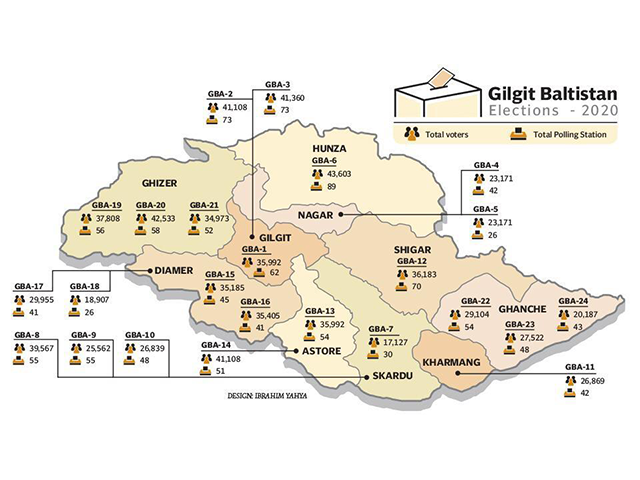
As the people of Gilgit-Baltistan head to the polls today to elect only the region’s third legislative assembly, the hopes of its outgoing ruling party seem anything but promising.
The Pakistan Muslim League-Nawaz, which secured a landslide victory with 16 directly-elected seats in the previous election held in 2015, appears to be struggling this time around. With 10 of its main regional leaders jumping ship to the Pakistan Tehreek-e-Insaf, the chances of PML-N mounting a successful re-election bid appear highly unlikely.
In a stark reversal of fortunes, observers expect the PTI and the Pakistan Peoples Party to emerge as the main contenders in today’s polls, with a slight edge going to the former on account of its presence in the federal government. Both parties only secured a seat each in the 2015 election, although PPP, like the PML-N, did secure a landslide in the first polls for the G-B assembly.
Gilgit-Baltistan has a total of 24 constituencies although there are 33 seats in total in its legislative assembly. This means political candidates will directly contest for only 24 seats in today’s elections. The remaining nine seats are reserved for women and technocrats, with six going to the former and three to the latter.
All set and ready to go
According to data obtained from the G-B Election Commission, a total of 745,361 people have registered to vote today, 339,992 of whom are women. Nearly 1,234 polling stations have been set up in the 24 constituencies, of which 415 have been declared extremely sensitive.
Police, G-B Scouts, the Rangers and FC personnel will be deployed at the sensitive stations to ensure a smooth election process, although G-B Caretaker Chief Minister Mir Afzal earlier announced that they would not seek the Pakistan Army’s assistance for the polls.
On Saturday, G-B Chief Election Commissioner Raja Shehbaz Khan reviewed security arrangements at polling stations in Gilgit city. He also visited the election cell of the G-B police department, where he received a briefing on the arrangements from police chief Mujeebur Rehman and DIG Headquarters Afzal Mehmood Butt, an official statement released by the G-B Election Commission said.
Expressing satisfaction with the arrangements, the CEC said no one would be allowed to take the law into their own hands. ‘We have to ensure clean and transparent elections in the region,” he added.
However, it is unlikely his comments will pacify the reservations of the participating parties.
Controversy brews
As the top leadership of all participating parties held the last of their election rallies in major cities in the region on Saturday, a contentious campaign process finally came to an end. Over the weeks that it spanned over, all political factions engaged in contentious rhetoric.
The opposition parties in the centre took particular offense at the role some federal figures played in PTI’s election campaign. “Where is the chief election commissioner? Why is he silent over a minister’s visit,” PPP Chairman Bilawal Bhutto Zardari said before a group of journalists, as he accused the PTI of risking ‘serious consequences’ by ‘openly engaging in pre-poll rigging’.
Bilawal was referring to Federal Minister for G-B and AJK Ali Amin Gandapur, who visited all 10 districts of the region over the week, participating in public rallies and announcing development projects. “G-B will have megaprojects but that is only possible after you vote the PTI to power,” he claimed in one of the gatherings which took place in Gilgit.
PML-N Vice President Maryam Nawaz expressed similar sentiments to those of Bilawal a few days. “There is prepoll rigging all around,” she said referring to announcements Gandapur made repeatedly at PTI election rallies. Referring to the defection of 10 PML-N leaders to the PTI, Maryam said it “it only exposes the level of a party that needs PML-N candidates to be relevant in the elections.”
The PML-N started its campaign slightly later than PPP, whose chairman kept party workers charged for over three weeks. In contrast to Bilawal, who ran a full throttle campaign in person from the front, Maryam only visited G-B for a week in November.
A brief history of G-B
G-B’s modern history can be traced back to the 19th century. In 1846, after many wars and bloodshed, the Dogras incorporated the region into the princely state of Jammu and Kashmir. The relationship remained intact till 1947 when G-B ousted the Dogras and offered to join Pakistan unconditionally.
G-B is a disputed territory under the UN’s resolutions, and up till now its fate has been linked with the unresolved Kashmir dispute between India and Pakistan. But over the years, on the demand of the local population, Pakistan has been taking steps to politically affiliate the region with the country.
G-B was made an administrative province in 2009 after then president of Pakistan Asif Ali Zardari signed the Empowerment and Self Governance Order which introduced a chief minister and governor for the region for the first time. PPP won the first elections then in 2009 and Mehdi Shah became the first chief minister of G-B.
During the tenure of PML-N government, Prime Minister Nawaz Sharif constituted a powerful committee headed by Sartaj Aziz to bring reforms in the previous governor order of 2009. The committee worked on the reform document for two years and recommended a ‘provisional constitutional province for G-B’ with representation in parliament. That plan did not materialise, however, due to friction between the PML-N and the establishment.
At present, the region functions under the Gilgit-Baltistan Order, 2018, which replaced the G-B Empowerment and Self-Governance Order, 2009. However, both the orders have failed to give representation to people of G-B in the Pakistani parliament.
In November 2020, Prime Minister Imran Khan announced that G-B would be given the status of a provisional province and that the process to fully convert it into an actual province is currently underway.
The participation of the country’s top politicians in the election campaign and their vows to build multi-billion dollar infrastructure projects also suggests that decades of G-B’s disenfranchisement may come to an end relatively soon.

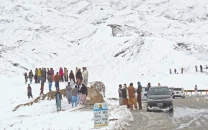
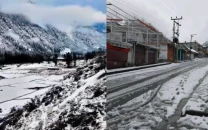
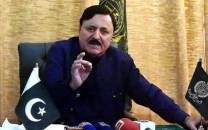
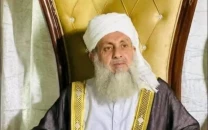
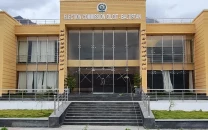












COMMENTS
Comments are moderated and generally will be posted if they are on-topic and not abusive.
For more information, please see our Comments FAQ